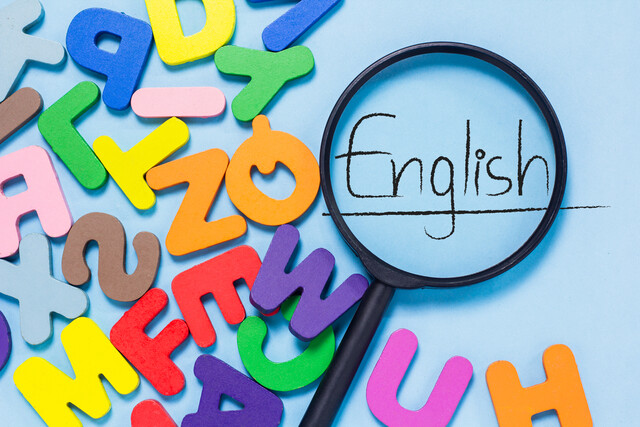Introduction
Reading difficulties are not always easy to identify. Many people don't know what to look for because everyone learns at different speeds, making it difficult to determine if there is a problem at all. After all, if you'd rather be outside enjoying the beautiful weather, you're not going to be reading as quickly or thoroughly as someone stuck inside a classroom or workplace during a snowstorm.
One of the most common signs of reading difficulties in native English speakers is a difficulty in manipulating sounds and words, although this symptom may not hold true for those learning English as a second language (ESL).
However, the inability of someone to remember or memorize basic letters of the alphabet, their sounds, and one-syllable words, despite repeated practice, may indicate some sort of a reading difficulty that may not be caused by the mere fact that the language is different. For example, a person who is only able to remember a handful of letters of the alphabet after repeated practice and study might have issues with vision, attention difficulties, or cognitive processing.
Some of the most common issues that are involved with those experiencing reading difficulties are due to medical factors. One of the most common is dyslexia.
Dyslexia, broadly defined, is an inability or difficulty in learning to read and write by otherwise intelligent children and adults who are engaged in, or have had, adequate education. There is no known direct cause or causes of dyslexia, but it is generally understood that one of the most recognizable symptoms of dyslexia seems to involve the reversal of letters or numbers. In addition, dyslexia also causes the inability of the individual to break words into individual sounds, or the inability of the individual to remember what words sound like.
Contrary to popular belief, dyslexia is not a vision problem. Additional symptoms that often accompany dyslexia are poor short-term memory skills, or problems processing the spoken language. Generally considered to be a reading disability, dyslexia is a condition that cannot be reversed. However, many individuals successfully develop strategies that help to compensate for reading difficulties through remedial instruction.
Some researchers believe dyslexia may be inherited. In some dyslexic students, reading and spelling may be the most difficult subjects, while other individuals diagnosed with dyslexia might also have problems in mathematical subjects. A survey indicated that of those students with dyslexia, nearly 40 percent have family members who also experience some reading difficulties. Research and studies are continuing in an attempt to determine the exact causes of dyslexia, which should only be diagnosed by qualified reading professionals.
Unfortunately, many teachers and parents believe that any student who is a slow reader, or one who does not seem to advance as quickly as his or her peers, is dyslexic, which is certainly not true. As with any reading difficulty, experimenting with different reading methods may help to improve both speed and fluency.
ADHD, also known as attention deficit hyperactivity disorder, is a very familiar term within school districts around the country. While attention deficit hyperactivity disorder is more common in boys than girls, ADHD is often blamed for children's poor behavior or grades in school.
Children as well as adults diagnosed with attention deficit disorders often find it difficult to understand instructions given in school or the workplace. Difficulty focusing and maintaining attention to specific activities and tasks is a major challenge and failing to complete tasks or activities is very common. Generally, there are three different types of ADHD. The first is a combined attention deficit and hyperactivity impulsiveness that often provokes frustration in both of those diagnosed with the condition as well as those attempting to instruct them.
ADD, attention deficit disorder, is similar to ADHD, without the hyperactivity issues. In some individuals, the hyperactivity may be present without any deficits in attention levels.
Keep in mind that any reading disorder or difficulty needs to be properly examined and assessed by a professional. Just because a student has difficulty memorizing vocabulary, or may have continued difficulty grasping comprehension and concepts when it comes to reading or writing the English language does not mean that he or she has a reading or learning disability.
Regardless of age, there are many different techniques that may be used to help readers having difficulties. With adult reading tasks, it does not always matter whether the reading is completed quickly or slowly, as long as comprehension is achieved.
Reading more slowly, as well as reading out loud, may help to increase and improve reading speed and comprehension. Taking the time to thoroughly understand vocabulary and sentence structure may also help improve reading skills. However, one of the most popular methods used today to help increase reading comprehension and skill is to use a combination of visual and printed words to help students make the connections between words, sounds, and their corresponding objects.
One must also never overlook the importance of vision when assessing a reading difficulty. At the first sign of reading difficulties, it would be wise for parents or individuals to have the vision of the person experiencing difficulties checked for problems that may require the use of glasses.
The Importance of Attitude
Attitude is extremely important in any learning situation. Whether a child or an adult, a native English speaker, or student learning English as a second language, a positive attitude will help normal learning processes and encourages self worth and confidence. Everybody thinks differently, and may arrive from point A to point B by a different road or method. In order for students to feel successful, they need to be reassured of their reading strengths.
At the first signs of reading difficulties, sit back and assess the potential reasons for the difficulties. Are you trying to move ahead too quickly without a solid foundation of vocabulary and usage skills? Are you attempting to advance from simple elementary readers to complex textbooks or literature without taking the time to understand the difference between certain types of writing?
If you find yourself having difficulty with reading, try changing reading locations and situations. Do you feel pressured? Are you rushing yourself? Try to find a peaceful and secluded location for your reading sessions and adapt them to your special needs and desires. While many of us put ourselves under pressure to learn a certain amount of information or materials within a certain time frame, this is not always conducive to increasing skill and comprehension.
If you believe that you or someone you know may have reading difficulties or disabilities, engage in various tests that may help you pinpoint the problem and seek solutions that may help you to overcome obstacles.
Conclusion
Introduction
When it comes to reading, one of the key factors for success is to read materials that you enjoy. Of course, while learning how to read and write the English language, students may have to read required materials and complete various worksheets. However, always strive to add some enjoyable reading to your coursework by choosing selections to read at home that will help increase your vocabulary, as well as your joy for reading. This section will briefly recap and hopefully encourage students to always find something fun and engaging about the reading process.
Getting Enjoyment From Your Reading
Reading enables students of the English language to not only learn, but to also go on wonderful adventures that may be scary, or romantic, or mysterious. We may find ourselves on a pirate ship or in a space ship, or hurtling backward in time to the Crusades, or discovering the ancient treasures buried in pyramids or tombs. We may find ourselves thrust into adventures that we would never dream of doing in our real lives. No matter what type of reading you prefer to engage in -- historical, mystery, romance, or nonfiction -- reading engages the imagination and propels us into places we might never have imagined.
In order to increase reading skills and comprehension, students learning English as a second language (ESL), or native English speakers wishing to improve their skills, one must always remember the basic foundations of any language. Vocabulary building is essential for increasing reading ability. Knowledge of the basics of grammar will help to clarify thought processes and ideas.
Being able to comprehend and retain what has been read also will help when it comes to reading different types of documents and materials. Having learned a few of the most common methods to identify word parts and increase vocabulary-building skills, you should be well on your way to being able to recognize the difference between the reading method used for understanding medical documents, and that required for reading your favorite magazine articles or novels.
We have briefly explained the importance of understanding different types of reading requirements for different types of documents, and for daily living needs and scenarios. While skill levels necessary to read a restaurant menu may be different than the reading skills necessary to fill out a document for government assistance or medical care, the importance of vocabulary in different work fields and environments cannot be overlooked.
Students able to connect to the Internet will find thousands of resources to help improve reading skills, from interactive games to engaging in discussion, forum boards, and blogging.
Try to find secluded or peaceful areas where you can read and write at leisure. After study sessions have been completed, choose reading materials that engage your attention and interest. An ability to read well may help to enhance daily living skills that are involved in driving, transportation, shopping, and cooking. Reading skills also help provide a sense of security and self-confidence in a multitude of environments.
Remember that increasing reading comprehension takes time and patience. In order to comprehend a wide variety of written materials, a student's attention needs to be focused on the meaning, as well as vocabulary, contained in specific documents. Learning how to sound out loud, take words apart, and take the time to look up new words in a dictionary whenever necessary, will help to focus your mental attention on reading passages in all types of materials.
Remember that practice encourages perfection and a sense of permanency. The more vocabulary words you read and memorize, the greater reading skill, speed, fluency and comprehension will increase. Sometimes, words or passages need to be read twice, five times, or a dozen times for understanding to be achieved. Give yourself time to increase your vocabulary foundation, as well as your ability to decipher and decode sentences, and then longer and more complex passages.
Reading provides human beings with the ability to communicate and convey thoughts and ideas. Reading is an important skill, whether you're looking at prices at a grocery store, searching for your destination on a bus or train schedule, or before signing the medical consent form for treatment at your local hospital.
Reading can be fun and exciting, as well as empowering. Read every day!
Conclusion























